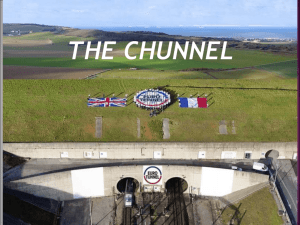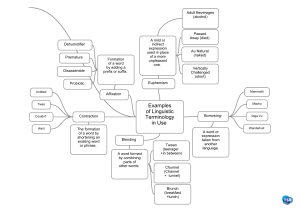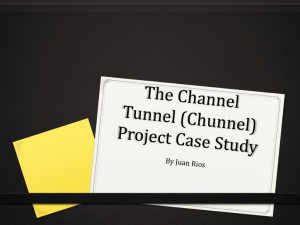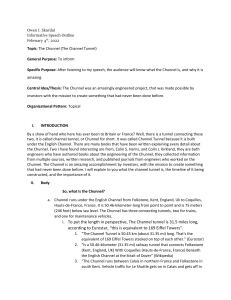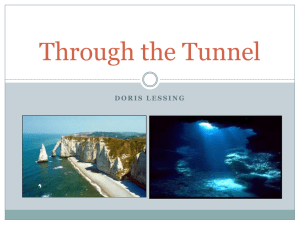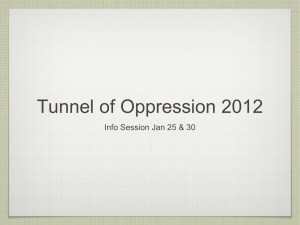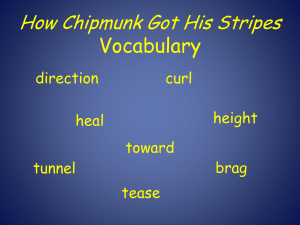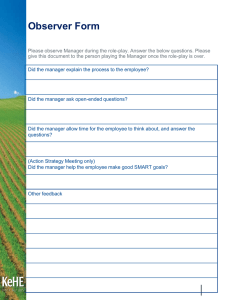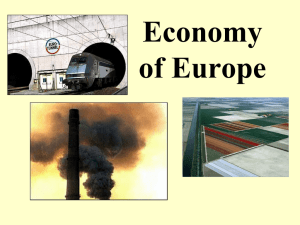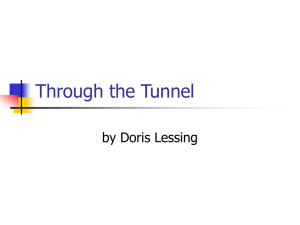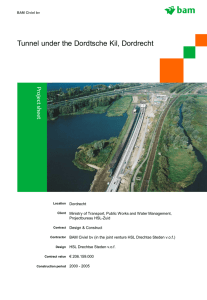Questions
advertisement
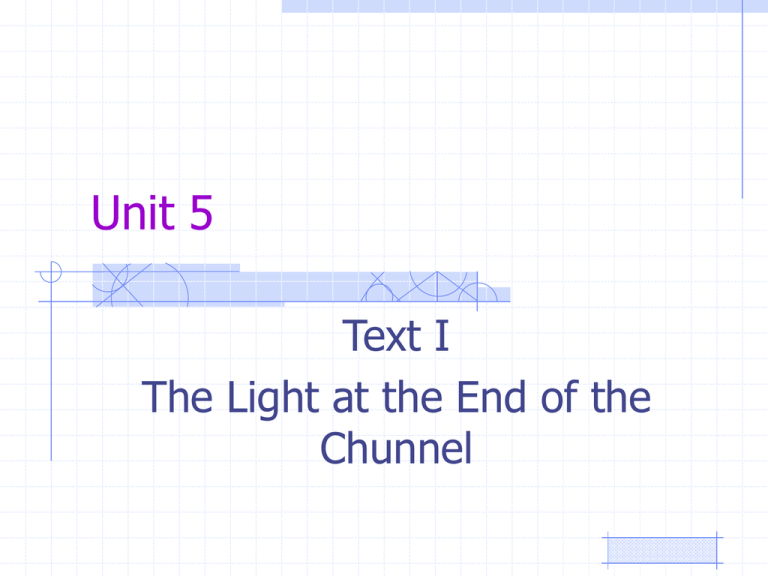
Unit 5 Text I The Light at the End of the Chunnel Objectives: • 1. The building of English Chunnel • 2. Narration in Informal Tone • 3. Vocabulary and structures Teaching Tasks and Process Background information • The National Geographic Magazine is the official journal of the National Geographic Society. It published its first issue in 1888, just nine months after the Society itself was founded. Some information for a better understanding of the text • The English Channel • The long-lasting Anglo-French Conflict • The Channel Tunnel Project The English Channel The Channel Tunnel Pre-reading Questions • How did the English and the French people look at the Chunnel, joyously or resentfully? Why do you think so? • How do you visualize the breakthrough ceremony? Exercise your imagination. Main idea • In spite of the adverse sentiments expressed by the English and the French people, the Chunnel that joins Britain and France was finally completed and, looking back, the breakthrough that took place several years ago was a moving scene. Language points • soon-to-be-opened English Channel Tunnel: Please note the word formation. • an easy-to-perform trick • a difficult-to-use camera …, stiff upper lips trembled. • stiff upper lips: the ability to accept bad luck or unpleasant events without appearing upset. • British men are taught to keep a stiff upper lip and show no emotion. …, his pale blue eyes filled with foreboding. • He stood there, his hands in his pockets. • She ran, her long hair flowing in the wind. • The last bus having gone, we had to walk home. • foreboding: a feeling of coming trouble …, as the gull-wing eyebrows shot upward. • a baby-food store • a mountain-top hut • a city-construction discussion Well, by grace of one of the engineering feats of the century, … • by grace of: due to; thanks to • By the grace of God the children were rescued by the firemen. …,for richer or poorer, better or worse, England and France are getting hitched. • “To have and to hold from this day forward, for better, for worse, for richer, for poorer, in sickness and in health, to love and to cherish, till death do us apart.” Queen Elizabeth of Britain and … are scheduled to inaugurated … • inaugurate: to start some important event • inaugurate a conference • inaugurate a new era • The Queen inaugurated the exhibition. Inauguration Music blares, and lights glare. • near and dear • hustle and bustle • out of sight, out of mind Questions • 1. What did an English couple say about the French people, and what did a Frenchman say about the English people? Why do you think they showed a mutual feeling of dislike? • 2. With the help of the information given in the Notes, explain the following: • 1). 200 years of failed cross-Channellink schemes, and • 2). 1,000 years of historical rift. • • 3. How will the Chunnel facilitate the transport between Great Britain and France, or rather, between Great Britain and other European countries? 4. Did the mutual feeling of dislike still exist when the tunnel was completed? • 5. How do you understand the sentence “The Chunnel rewrites geography, at least in the English psyche”? • 6. Why did one of the visitors say “Makes you appreciate British Rail”? 7. Describe the breakthrough scene in your own words. • There were many people present, the Eurotunnel officials, construction workers, and journalists. When the cutterhead of the tunnel boring machine bit into the last piece of rock separating England from France, there was loud music as well as dazzling lights. A number of Frenchmen were seen coming from the other side, and thunderous applause was heard. The French and British people drank champagne and hugged each other. It was truly a moving sight. Text II Travelling Questions • What kept Aunt Augusta from traveling as constantly as before? • What were the advantages of going to Istanbul by plane? • Why did Aunt Augusta not take the plane? • What do you think their surname was? • Compare Aunt Augusta and Henry. Discussion/Exercises • ORAL WORK • Role-play—A Trip to China ORAL WORK • Role-play • A Trip to China Assignments • Exercises on the Work Book
